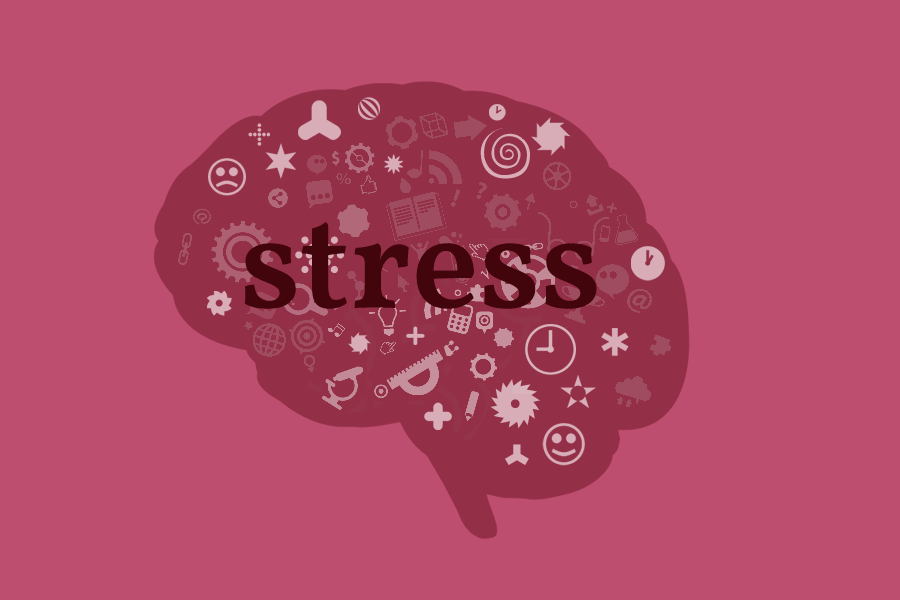Do you think stress is bad for you? Well, It turns out some short-term stress is actually not too bad while any longer, chronic stress may cause health problems.
Let’s look at some facts about stress.
So what exactly is stress?
Psychologically, stress is the sense that the demands in one’s environment are greater than one’s ability to cope with them.
Physically, it is a reaction of our body to a possible threat that disturbs our emotions and calmness. It can be triggered both internally by worrying, and externally by noticing a threat.
Who gets it?
All mammals have reactions to possible threats. It is a part of our survival mechanism.
Do we need it?
Stress is part of our life and without a stress response we couldn’t survive. A short period of stress, known as acute stress, keeps us active and alert.
What happens physically?
When there is a possible threat, a part in our brain called the amygdala interprets the images and sounds that are coming in – at this stage the amygdala can’t identify whether it is a tiger or just an annoying driver. When it perceives something as a danger, it instantly sends a distress signal to another part of the brain called the hypothalamus, which in fact is one of our ‘oldest’ parts of the brain. This connection is so efficiently wired, that all this happens before our brain receives the signal as visual information.
The hypothalamus activates a ‘fight and flight’ response, which means adrenaline is pumped into our blood stream. This reaction puts us into ‘fight or flight’ mode, by mobilising a lot of energy in order to be able to cope with that threat. Then the hypothalamus activates the second stress response system — known as the HPA axis which involves the adrenal glands. This system acts like a gas pedal – if the situation keeps being perceiving as stressful the hypothalamus will continue pressing that pedal to release more hormones like cortisol which enable us to continue being in a state of high alert. When the threat is over, cortisol levels fall and eventually our calm nervous system kicks back in and everything goes back to normal.
This mode evolved as a survival mechanism against life-threatening situations. However in our modern world, the same stress response can happen in situations like an upcoming exam, an interview, a deadline, or simply being in rush-hour traffic (which of course are all non life threatening).
How does it affect our health?
Not putting a brake on our stress responses may affect our health. We may end up in a state of chronic stress, which in turn will affect our heart, digestive system, immune system, and other parts of our body. The reason is that the body uses all its resources for immediate survival, and puts other body organs and processes on stand-by stopping their jobs – like digesting food – or it starts overworking them – like pumping heaps of blood around the heart all the time which may lead to heart disease. Being in the state of prolonged stress can also suppress our immune system which will leave our body in a vulnerable state against infections and viruses, and other threats.
How does it affect our mental health?
The signs of stress can include irritation, forgetfulness, feeling overwhelmed, lack of concentration, constant worry, over-excitability, feeling overworked, general negative thoughts, frustration, to name but a few… However these symptoms can be characteristic of other physical or mental problems also.
This article is intended to raise awareness of stress and its effects on our well being. If you are experiencing one or more of the above symptoms I recommend you consult your doctor or health care professional.
Stress Management
For your general well being and coping with stress, here are some things you can do in your daily life:
- The first thing is to learn to calm down by using relaxation technics like deep breathing, or a short meditation.
- Exercise regularly in nature.
- Have a good sleep and rest sufficiently.
- Adopt a positive attitude – cultivate hope, optimism, and appreciation towards life.
- Have a good laugh.
- Have a healthy, balanced diet.
- Organise your life and prioritise to avoid feeling overwhelmed.
- Talk to a friend (or to a professional).
- Develop self awareness to identify stressors in your life. Regular mindfulness meditation has been proven to be very effective.
- Change how you react – first identify what upsets you, then name it, and then think about what you could do differently in future.
What are your experiences with stress, and how has this affected your life? What strategies have you come up with to deal with these challenges? Please share your ideas & experiences below. I look forward to hearing them.
Love and Blessings.
Nalan Kirsch
Here is a great short video on stress. Well worth watching!

